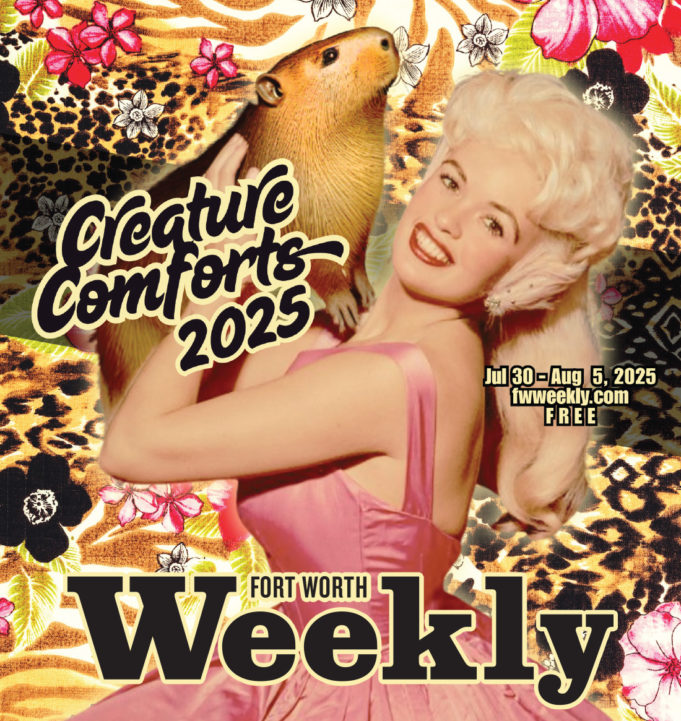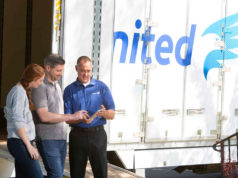For the cover of this, the third annual Creature Comforts special issue, we hope you enjoy the artistic take on a 1955 image of Jayne Mansfield and her Pekinese dog, Powder Puff, who was transformed into one of our nation’s current obsessions: capybaras. We’ll get to the cappys soon. But why Jane? And why now? Glad you asked.
When famous animal lover Jayne Mansfield died in a car crash in 1967, her daughter, actress Mariska Hargitay, was one of the survivors. She was only 3. Now, at 60, Hargety has gathered her mother’s remaining memorabilia, the few pieces that weren’t auctioned off by the estate (get a will, people, we all need one), and, along with her siblings, has completed a documentary film called My Mom Jayne: A Film by Mariska Hargitay.
Besides Mansfield being a bombshell and having a menagerie of children and pets — five kids, some ocelots and rabbits, many different dogs, and a 33rd birthday party starring a pink baby elephant — many things about her life have been a mystery until now. Given that Jayne Mansfield grew up in Dallas and met her first husband, Oak Cliff native Paul Mansfield, at SMU, it would be great if a North Texas cinema, such as the Texas Theatre, would host a viewing party. Until then, you can stream the film on HBO Max.
The documentary that inspired our cover design focuses on Hargety getting to know her mother rather than a comprehensive dive into all things Jayne Mansfield, so I still have questions. Was her home, The Pink Palace, really haunted? Anton LaVey: Actual friend or fellow publicity hunter? Why did people in the 60s think it was okay to cover a baby elephant in non-toxic (but highly unnecessary) pink chalk paint for our amusement? We may never know. One thing we do know is that petting zoos are still popular.
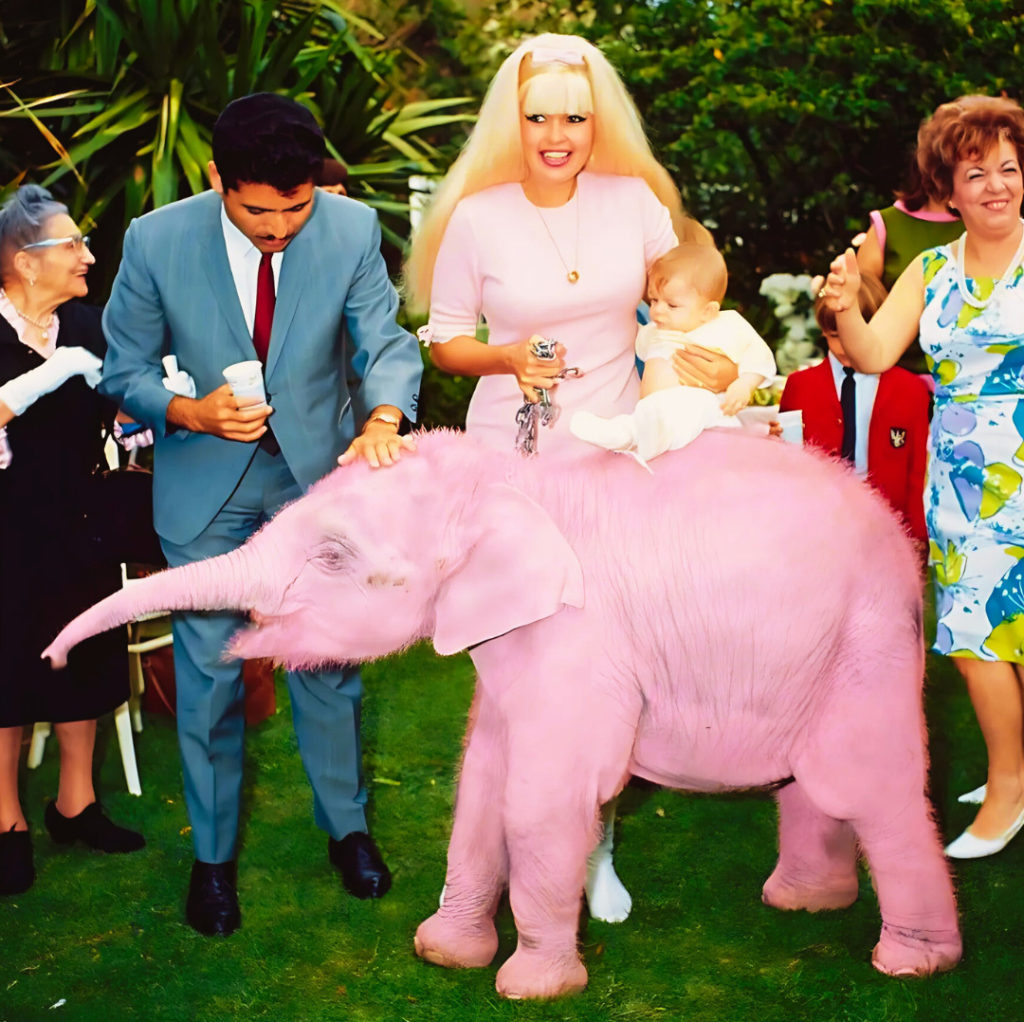
Courtesy Reddit
During the pandemic-era Tiger King phase we all went through, we learned what not to do. Roadside petting zoos, especially the ones breeding predators, are dangerous. Tiger cubs are only cute and small for so long, and breeding them simply for humans to cuddle with is problematic. Upon adulthood, there is very little use for them. Please avoid those places.
Instead, seek out places that are in a good, safe, and legal environment for both you and the animals. One such experience is available at the Fort Worth Zoo (1989 Colonial Pkwy, Fort Worth, 817-759-7555), for example. The park’s African Savanna exhibit is a 10-acre space where visitors can observe giraffes, springbok, and ostriches sharing the habitat. You can purchase lettuce to feed the giraffes at the feeding platform for $6.
Now, back to those cappys! The capybara is the largest living rodent and is native to South America. Its close relatives include guinea pigs and rock cavies, and it is more distantly related to the agouti, the chinchilla, and the nutria. The capybara inhabits savannas and dense forests and lives near bodies of water. It is a highly social species and can be found in groups as large as 100 individuals, but typically lives in groups of 10–20. It turns out that you can meet some in Burleson.
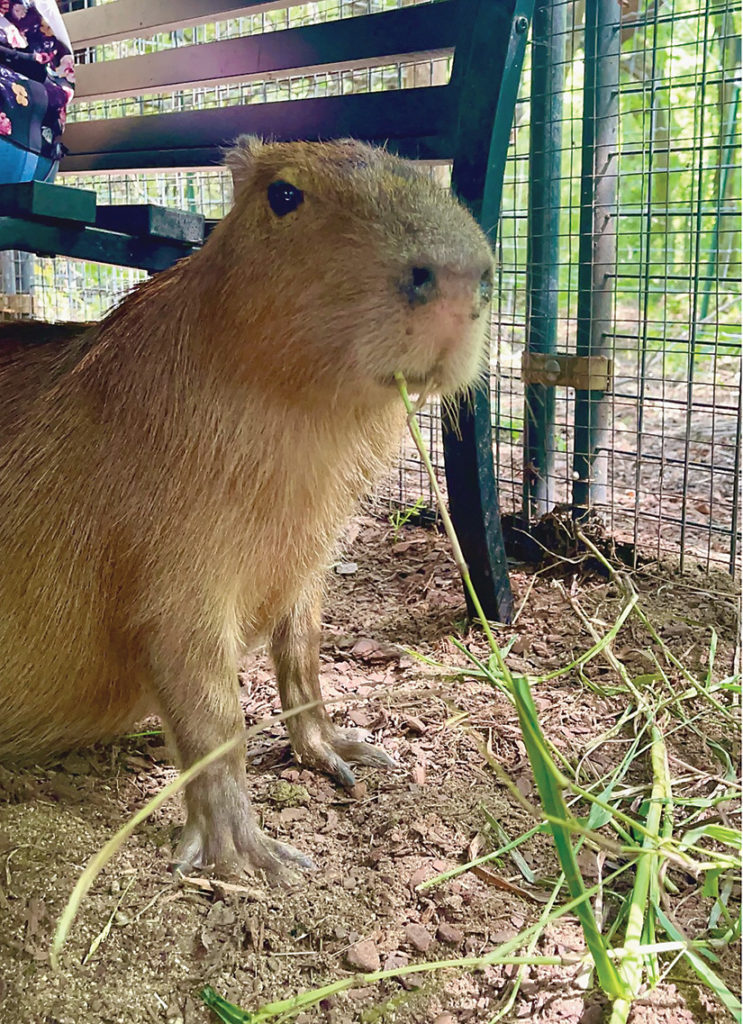
Photo by Wendy Maier
Our brand ambassador, Clint Newquist, is a fan of emus. More specifically, Limu from the famous Limu & Doug commercials by Liberty Mutual. On a quest to meet some real-life emus, we found Dunham Farm (3501 FM 1187, Burleson, 817-627-4789). Once we discovered that capybaras were also on the farm, we suddenly had a Weekly group activity on our hands, and seven people headed to Burleson to cuddle capybaras and meet emus. “I’m in Emu Heaven!” Clint proclaimed. Indeed.
The Dunham Farm is a family-run establishment, and the current operators are the fourth generation of the family. This unique wildlife park and petting zoo offers visitors the opportunity to interact with a variety of animals, including opportunities for hand-feeding, petting, and taking photos. Along with the capybara and emus, there are Silkie chickens, giant tortoises, Netherland dwarf rabbits, and wallabies. In addition to the wildlife park, Dunham also features a tree farm where they grow and sell fruit and shade trees, berry bushes, ornamental shrubs, and more.
They have a high rating (4.9 stars on Google with 833 reviews) and are praised for their unique animal encounters, knowledgeable and friendly staff (including owner Todd), and beautiful grounds. And they are licensed. Given the nature of their operations, they are required to be licensed and pass annual inspections by the United States Department of Agriculture to care for and exhibit these animals.
In summary, don’t paint any elephants pink. Meet a cappy (or emu) instead!
For the most immersive experience at Dunham, you’ll want a VIP tour. If you are interested in visiting the farm, you can find more promotional information and book your time slot at TheDunhamFarm.com. Visits are strictly by appointment.
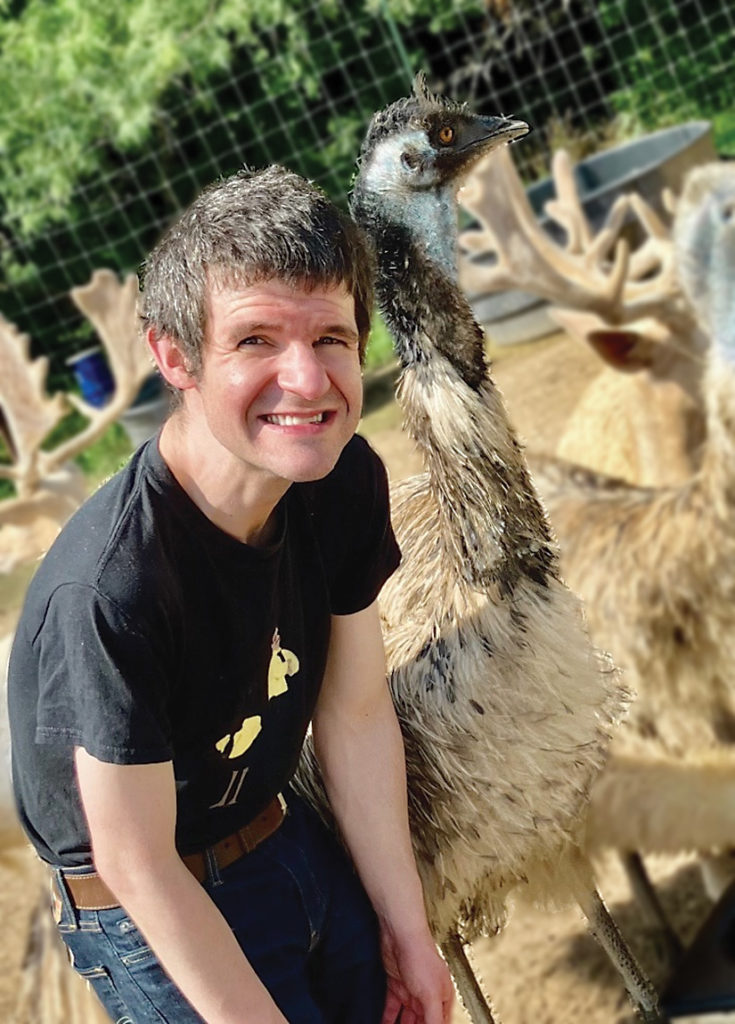
Photo by Lee Newquist


